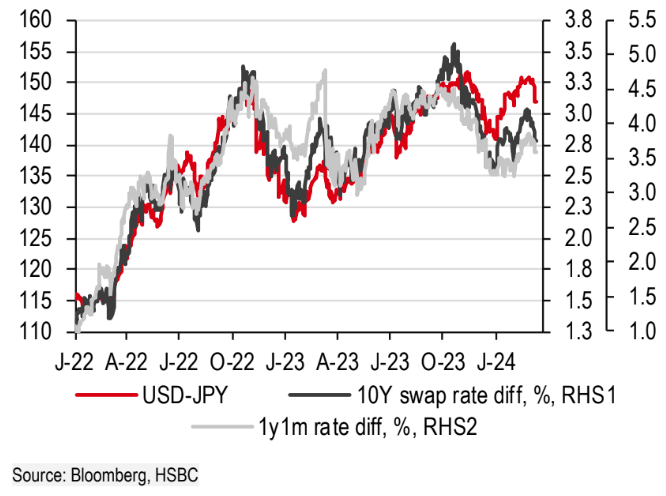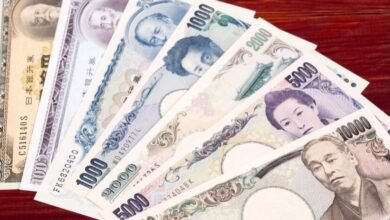Yen Strength Will Have its Limits, Says HSBC


Image © Adobe Stock
In a recent analysis conducted by HSBC Economics Research, the Japanese yen (JPY) is anticipated to recover in 2024, although strength will be limited to levels last seen in 2023 with downside risks.
One of the key factors driving this anticipated recovery is the expected narrowing of the yield differential between the United States and Japan. “Our regression analysis suggests that the interest rate differential is a key driver of USD-JPY,” stated HSBC’s Head of Asia FX Research, Joey Chew. “We estimate that a 100 basis point change in the 10-year rate differential can cause a 7-9 yen change in USD-JPY.”
Additionally, an “extreme undervaluation” of the yen has led to a ‘J-curve’ effect in the balance of payments, resulting in a boost in services exports and a contraction in imports. “The tourism trade surplus has reached an all-time high, reflecting the impact of undervaluation on Japan’s trade dynamics,” explains Chew.
His analysis also anticipates a potential increase in FX hedge ratios among life insurance companies, following historically low levels in 2023. “We think life insurance companies will moderately raise their FX hedge ratios, having already compressed them to historically low levels in 2023 due to cost considerations”.
Geopolitical uncertainty surrounding the U.S. election could further influence the yen’s trajectory, with investors potentially turning to the currency as a safe haven asset.
According to HSBC’s projections, the yen is poised to strengthen to 136 against the US dollar (USD) by the end of the year.
However, HSBC’s researchers caution that the balance of risks suggests a weaker yen than projected, citing speculative activities and market dynamics that could undermine the currency.
Moreover, recent changes to the Nippon Individual Savings Account (NISA) program have led to increased investment in foreign equities by retail investors, potentially offsetting FX hedging flows from life insurance companies.
“Retail investors’ equity outflows could have significant implications for the yen’s exchange rate,” says Chew.
Source link







